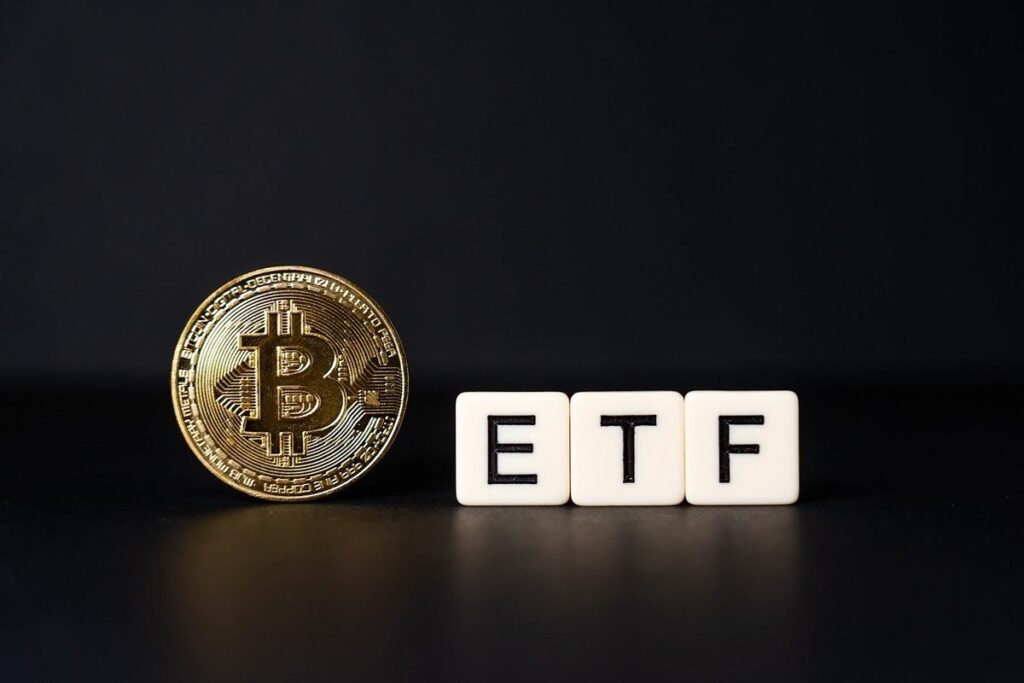Bitcoin is still at the forefront of the cryptocurrency industry’s ongoing evolution in 2025. But a notable change in the Bitcoin market this year has many people taking notice. One of the most well-known cryptocurrency funds, Bitcoin BlackRock ETF Exchange-Traded Fund (ETF), has experienced significant withdrawals. Investors and analysts are wondering why these outflows are occurring and what this abrupt and dramatic trend means for Bitcoin’s future and institutional adoption.
Rise of Bitcoin ETFs and BlackRock’s Position
BlackRock’s Bitcoin ETF launch was a financial milestone. Bitcoin was once considered a niche asset by traditional investors, but ETFs helped mainstream financial markets accept it. One of the largest asset managers, BlackRock, led this transformation. The ETF gave investors a simple, regulated way to enter Bitcoin without the hassle of holding it directly.
The crypto community initially welcomed BlackRock and other financial giants’ move, seeing it as a turning point for Bitcoin and other cryptocurrencies. BlackRock’s Bitcoin ETF initially attracted institutional and retail investors, raising Bitcoin’s price. For a time, cryptocurrency seemed to have entered mainstream finance.
BlackRock Bitcoin ETF Sees Outflows 2025
But things started to change drastically in 2025. Following a period of notable expansion, BlackRock’s Bitcoin ETF started to see outflows never seen before. Market watchers have taken notice of this abrupt change in sentiment as investors began withdrawing billions of dollars from the fund. These outflows were especially unexpected given Bitcoin’s comparatively steady market position.

Over the previous few years. Given the ongoing uncertainty facing traditional financial systems, Bitcoin was viewed by many investors as a safe haven asset. The question of why investors are opting to leave the Bitcoin ETF at this point is raised by the outflows, which indicate that investor confidence in the product is waning.
Increased Volatility in Bitcoin’s Price
The rising price volatility of Bitcoin is one of the main causes of the withdrawals from BlackRock’s Bitcoin ETF. Bitcoin has remained a volatile asset despite being praised as a store of value. The value of Bitcoin fluctuated significantly in 2025, with short-term price swings of several thousand dollars. However, the cryptocurrency market has always been.
Volatile investors who once considered Bitcoin a comparatively stable asset are now more concerned about it. These price fluctuations may have caused the outflows, with institutional investors specifically looking for safer, more reliable returns. Given the risks involved, the wildly fluctuating price of Bitcoin has probably made many people reevaluate their ETF investment.
Regulatory Concerns Cloud Over Bitcoin
The growing regulatory scrutiny of cryptocurrencies like Bitcoin is another important factor causing the outflows. With different nations adopting varying stances on the digital currency, Bitcoin has encountered an unpredictable regulatory environment over time. Although digital currency regulations have become more transparent in 2025, Bitcoin hasn’t always benefited from this.
Bitcoin-backed securities like exchange-traded funds are under closer scrutiny by the SEC and other international regulators. Investors worry about stricter laws or legal system changes. Under this regulatory framework, BlackRock’s Bitcoin ETF could face new pricing or operations restrictions. Outflows may also be caused by regulatory uncertainty.
Bitcoin ETF Faces Rising Competition
Regarding cryptocurrency investments, Bitcoin is no longer the only option. Several new investment vehicles have surfaced in recent years, offering substitutes for conventional Bitcoin ETFs. Investors who may have previously invested in ETFs like BlackRock’s are now drawn to newer products like Bitcoin futures, decentralized finance (DeFi) solutions, and even more specialized ones.

Blockchain investment opportunities. Some investors have moved their money from Bitcoin ETFs to alternative vehicles because these new products frequently promise greater returns and flexibility. It has become more difficult for established products like the Bitcoin ETF to hold onto their dominance due to the escalating competition and the growing complexity of the cryptocurrency mark.
Bitcoin’s Role in the Financial Ecosystem
The market’s view of Bitcoin and its role in the global financial system changed in 2025. Bitcoin remains a major digital asset, but its future is uncertain. Bitcoin’s status as “digital gold” or an inflation hedge has faded as other cryptocurrencies and blockchain technologies emerge. Bitcoin is no longer the only practical way for investors to gain exposure to digital.
Assets. As high-net-worth individuals and institutional investors look into alternative options, BlackRock’s Bitcoin ETF is having trouble holding onto its market share. Many investors may have lost faith in Bitcoin as the future of digital finance, as evidenced by the large outflows, and are now searching for other growth prospects.
Summary
Massive outflows from BlackRock’s Bitcoin ETF in 2025 signal a turning point for Bitcoin and the cryptocurrency market. The ETF is one of the largest and most well-known Bitcoin investment products, but cryptocurrency market dynamics are changing. This dramatic fund pullback was caused by volatility, regulatory concerns, rising competition, and changing.
Sentiment. Despite these obstacles, Bitcoin BlackRock ETF will continue. The cryptocurrency market is volatile, so a decline today could turn around. Bitcoin’s mainstream adoption will be difficult, so investors must be cautious. BlackRock’s Bitcoin ETF may recover or fade, but the cryptocurrency landscape is changing quickly.


